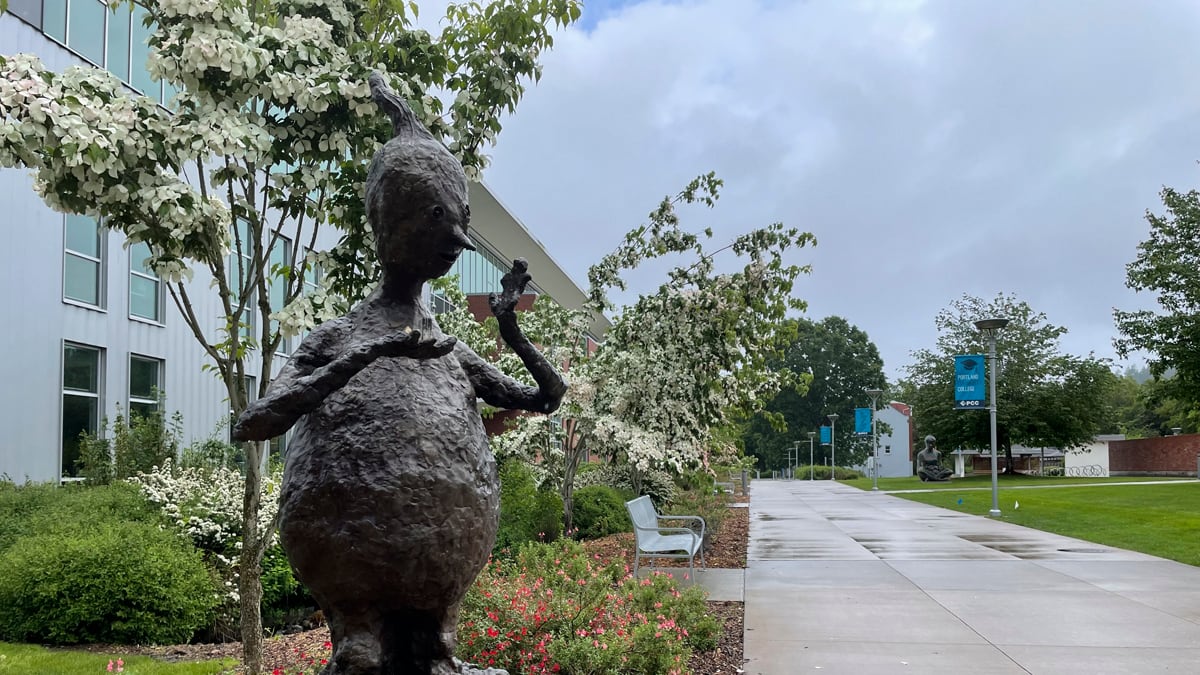An audit of Oregon’s community colleges released Dec. 19 found the system is failing students, in no small part because of poor oversight by the state Higher Education Coordinating Commission.
Auditors in Secretary of State Shemia Fagan’s office compared Oregon’s efforts to help the neediest students thrive with the efforts of Washington state, our neighbor to the north. One major point of comparison: tracking inputs and outcomes.
“Washington has made a substantial investment in improving data analysis and reporting, including higher staffing in research and analysis, data services, and student success,” auditors found.
“Its State Board of Technical and Community Colleges—a 239-employee agency and board devoted solely to community colleges—has five policy research analysts devoted to community colleges instead of two at HECC,” the audit continues. “It also has a six-member Student Success Center instead of a staff of one, and a 13-member data services team to maintain central data and help colleges with reporting and training.”
There are some bright spots. Oregon allocated $700 million to community colleges in 2021-23 and has directed significant scholarship money to the 178,000 students who attend Oregon’s 17 community colleges.
“Oregon’s financial aid funding for community college students ranked 10th to 12th among states from 2019 to 2021, based on aid per student,” the audit found.
But the money is going into a system struggling to attract and retain students, not only compared to Washington’s community college system but to national averages.
“Benchmarking showed Oregon’s community college enrollment has fallen faster than enrollment in most states, both before and during the pandemic,” the audit found, noting that “before the pandemic, from 2014 to 2019, Oregon’s annual student full-time enrollment fell roughly 20% versus 10% nationally, the 12th-highest decline nationwide” and “from 2019 to 2021, Oregon’s annual student [full-time equivalent] enrollment fell 17%, more than double the national average during the pandemic and the sixth-highest drop among states.”
Part of the problem is that students who graduate from Oregon high schools—at one of the lowest rates in the nation—don’t rush off to college.
And although they are improving, the results for Oregon community colleges are poor. “Oregon still ranks low in national comparisons of some key student success outcomes,” the audit found.
“Based on 2016 data, 49% of Oregon’s high school graduates enrolled in college within 12 months of graduation, well below the national average of 63%,” the audit found. “Data shows Oregon ranked on average 39th among states in six-year completion rates from 2016 to 2021, and 40th in 2021 rates.”

Although community colleges come in third in the educational pecking order in Salem after K-12 schools and the university system, lawmakers have allocated substantial funding increases to the community college system in the past decade.
The biggest increases, however, have gone not to frontline salaries, but to employee benefits and management salaries.

Auditors chided the HECC for failing to prepare the community colleges for what appears to be a coming confluence of lower enrollment, increasing costs, and the end of federal pandemic funding, which has buoyed community colleges.
“The colleges project a need for a 44% increase in state funding for the 2023-25 biennium to avoid large tuition increases and maintain status quo college operations,” auditors reported.
They noted, however, that the HECC doesn’t appear to be gearing up for difficult times: “Aside from requests for additional state funds for colleges and occasional one-time reports,HECC is not focusing on college sustainability. It is not monitoring college finances, linking spending to state goals, conducting data analysis to help colleges budget strategically, or helping to lead cost-sharing initiatives.”
In his response to the audit, HECC director Ben Cannon noted that Washington has devoted far greater resources to overseeing community colleges and has vested far greater authority in the agency that does that work.
In Oregon, as auditors noted and Cannon reiterated, although the HECC has had oversight over community colleges since 2015, its budget and scope of control are limited.
“No matter how much the HECC supports the secretary of state’s recommendations to improve community college outcomes and sustainability,” Cannon wrote, “implementing the recommendations is at present a shared responsibility of the HECC, local community college boards, community college staff, accrediting institutions, and the Oregon Student Success Center.”

